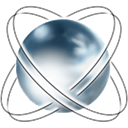Uncovering the Best Slackware Alternatives for Your Linux Journey
Slackware Linux is renowned for its stability, tradition, and a deep sense of user control. Designed with simplicity and power in mind, it appeals to those who appreciate a hands-on approach to their operating system. However, for some users, the learning curve or specific feature sets might prompt a search for viable alternatives. Whether you're looking for something more beginner-friendly, a distribution with a different package management system, or simply a fresh experience, exploring Slackware alternatives can open up a world of possibilities.
Top Slackware Alternatives
If you're seeking a different Linux experience, there's a wealth of operating systems that offer unique advantages over Slackware. Here are some of the best alternatives, each bringing its own strengths to the table.

Ubuntu
Ubuntu is a widely popular Debian Linux-based open-source operating system. It's an excellent Slackware alternative for users seeking a more accessible and user-friendly experience without sacrificing power. Available for Free, Open Source, Windows, and Linux, Ubuntu boasts features like an APT package manager, regular OTA updates, and strong security & privacy, making it a robust and convenient choice for many.

Debian
Debian is the foundation for many Linux distributions, including Ubuntu, and stands as a strong open-source Slackware alternative. Available for Free, Open Source, Windows, Linux, Windows S, BSD, and Self-Hosted platforms, Debian is known for its legendary stability and powerful package management. Its flexibility, low memory usage, and commitment to free software make it a preferred choice for users who value a solid and customizable system.

Linux Mint
Linux Mint, based on Ubuntu and Debian, is an incredibly popular open-source Linux distribution known for its modern, elegant, and comfortable desktop experience. As a Slackware alternative, it shines with its 'out of the box' functionality, Windows-like interface (especially with the Cinnamon desktop), built-in file manager, and strong focus on privacy. It's Free and Open Source, making it highly accessible.

Arch Linux
For competent Linux users, Arch Linux offers a highly customizable and lightweight open-source experience, making it a compelling Slackware alternative. It features a rolling release model, a powerful package manager (pacman), and the vast Arch User Repository (AUR). Free and Open Source, Arch Linux is ideal for those who prefer to build their system from the ground up, providing a 'bleeding edge' software experience.

Windows 10
While a departure from Linux, Windows 10 is a commercial operating system by Microsoft that serves as a mainstream alternative to Slackware for users who prioritize broad software compatibility and a familiar graphical user interface. Available for Windows, it features OneDrive integration, tablet support, and Xbox Streaming, catering to a different set of user needs and offering a complete ecosystem.

Manjaro Linux
Manjaro Linux offers the power of Arch Linux with enhanced user-friendliness, making it an excellent Slackware alternative. This Free and Open Source Linux distribution (based on Arch Linux) provides a rolling release model, strong stability, and 'out of the box' functionality. It features the Arch User Repository, excellent customizability, and support for Nvidia drivers, appealing to users who want a balance of power and ease of use.

Fedora
Fedora, a Free and Open Source Linux-based operating system backed by Red Hat, is a cutting-edge Slackware alternative known for showcasing the latest open-source technologies. It's ideal for developers and enthusiasts who want to stay current. Fedora provides an in-built GUI, multiple languages, and 'out of the box' usability, offering a stable yet innovative experience for its users.

elementary OS
elementary OS is a Free and Open Source Linux distribution based on Ubuntu, celebrated for its aesthetically pleasing macOS-like interface and user-friendly design. As a Slackware alternative, it focuses on providing a clean, distraction-free UI and comes with Flatpak support and Debian package compatibility. It’s an excellent choice for users prioritizing a beautiful and intuitive desktop experience.

macOS
macOS, a Unix-based operating system developed by Apple, serves as a high-end commercial alternative to Slackware for users within the Apple ecosystem. Pre-installed on all Macintosh computers, it offers a refined user experience, robust privacy features, and integrated services like QuickLook File Preview and Spotlight. While not open-source, its polished environment appeals to a wide user base.

ReactOS
ReactOS™ is a Free and Open Source operating system compatible with applications and drivers written for Microsoft® Windows™ NT, making it a unique alternative to Slackware for those needing Windows software compatibility. Available for Windows and FreeDOS, it is lightweight, features an NT kernel, and provides a Windows-like interface, offering a bridge for users transitioning from Windows environments.
The world of operating systems is vast and diverse, offering a multitude of choices beyond Slackware. Each alternative provides a unique set of features, a distinct user experience, and caters to different technical skill levels and preferences. Whether you prioritize ease of use, cutting-edge software, rock-solid stability, or a specific desktop environment, exploring these options will help you find the perfect fit for your computing needs.